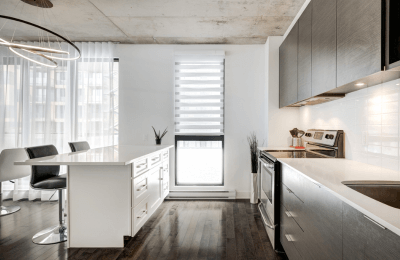Airbnb launched in South Africa in 2015. Since then, the number of home hosts has grown to more than 45,000, with South Africans pocketing more than R4.5 billion over this time. In Cape Town alone, Airbnb hosts earned more than R2 billion, contributing significantly to the local economy. The ripple effect of this booming Airbnb community has resulted in an economic impact of approximately R12 billion and supported upwards of 28,000 jobs across the country. So what’s the catch?
“You just never know what you’re letting yourself in for when renting to virtual strangers, and a big risk for homeowners is that their property will be damaged,” warns Christelle Colman, CEO of Ami Underwriting Managers part of the Lombard Group of companies, who offers tailor-made short-term insurance solutions to meet the changing insurance needs of their high-net-worth clients.
While most stays go without incident, there are stories of entire houses being wrecked by dozens of partygoers. For example, in Cape Town, there have been reports of guests causing significant damage, including hosting large unauthorized parties that led to thousands of rands in property damage. Other infamous reports include incidents where guests have misused or damaged furniture, causing major financial setbacks for homeowners.
In Cape Town, there have been liability claims involving guests slipping on wet surfaces or injuring themselves, resulting in significant costs to homeowners. Despite a sign at the back door warning that decking could be slippery when wet, the guest claimed for personal injuries, time off work, and legal fees.
“With the holiday season looming and many homeowners gearing up to rent their homes out over this period, it’s critical that they have the necessary insurance in place for both property damage and third-party claims,” says Colman.
Airbnb’s insurance offerings
Airbnb offers Host Guarantee and Host Protection Insurance.
Host Guarantee is designed to protect hosts in the rare instance of property damage (up to $1 million) to their own possessions, unit, or home by a guest staying in the space. While the Host Guarantee does offer the host some cover, it does not replace your homeowner’s or renter’s insurance policy.
Host Protection Insurance is designed to cover hosts in the event of third-party claims for bodily injury or property damage. This is available to hosts regardless of their other insurance arrangements, but will only act as primary insurance coverage for incidents related to an Airbnb stay.
Sounds fair, but several incidents suffered by Airbnb guests have shown that it’s not always as simple as it seems. The claims process can get very complicated, with guests often suffering personal financial setbacks when covering medical bills they thought would be covered by Airbnb Host Protection Insurance.
Insurance tips for Airbnb hosts
“It’s important to know exactly what your homeowner’s insurance policy covers. Many companies exclude short-term rentals and therefore do not cover your Airbnb rental. At Ami, we offer our clients specialty policies to help them adequately insure against loss or damage to personal property suffered because of short-term rentals,” says Colman.
What is, however, important to note is that the property owner’s liability risks incurred by paying guests will only be covered under most local insurers’ policies if they are purely a personal insurance risk. The liability policy therefore specifically excludes liability incurred by the client’s business. As such, if the Airbnb is a residential property that is used to supplement the client’s income, the liability will be covered. However, if the client is a property owner whose sole business is the owning and letting out of properties, it is considered a commercial risk, and the personal liability policy will not provide cover.
Also important to consider is that if you are renting out part of your home on a regular basis to generate income, it is general insurance practice in South Africa that your insurance company may view that as a business activity, which is typically not covered by a homeowner’s policy. Property owners would instead need to purchase a commercial insurance policy to ensure they are covered against damages.
“It is therefore important to always declare the occupancy purpose of your private home, even for short-term rentals. With Ami, we offer bespoke extended cover for short- and long-term home rentals,” notes Colman.
Three important questions to ask your insurance provider
What happens when my short-term paying guest:
- Burns down my building?
- Falls down my steps and sues me?
- Forgets to lock my front door and I get burgled?
If the answer to any of these questions is “you’re not covered”, then you may want to take out additional insurance. Colman cautions homeowners to seek professional advice regarding their specific insurance requirements. “A reputable broker will be able to identify all the relevant risk exposures involved with short-term rentals. While Airbnb rentals can be very lucrative, homeowners must be aware of the pitfalls. Not having the correct insurance can end up costing you a lot more than the rental income you earn,” she concludes.

